The new Beetle? PIX Moving’s Robo-EV is an insectoid concept car for urban travel
Melding generative design, 3D printing and an onboard AI, the Robo-EV crams as much future tech as possible into a tiny four-wheeled footprint
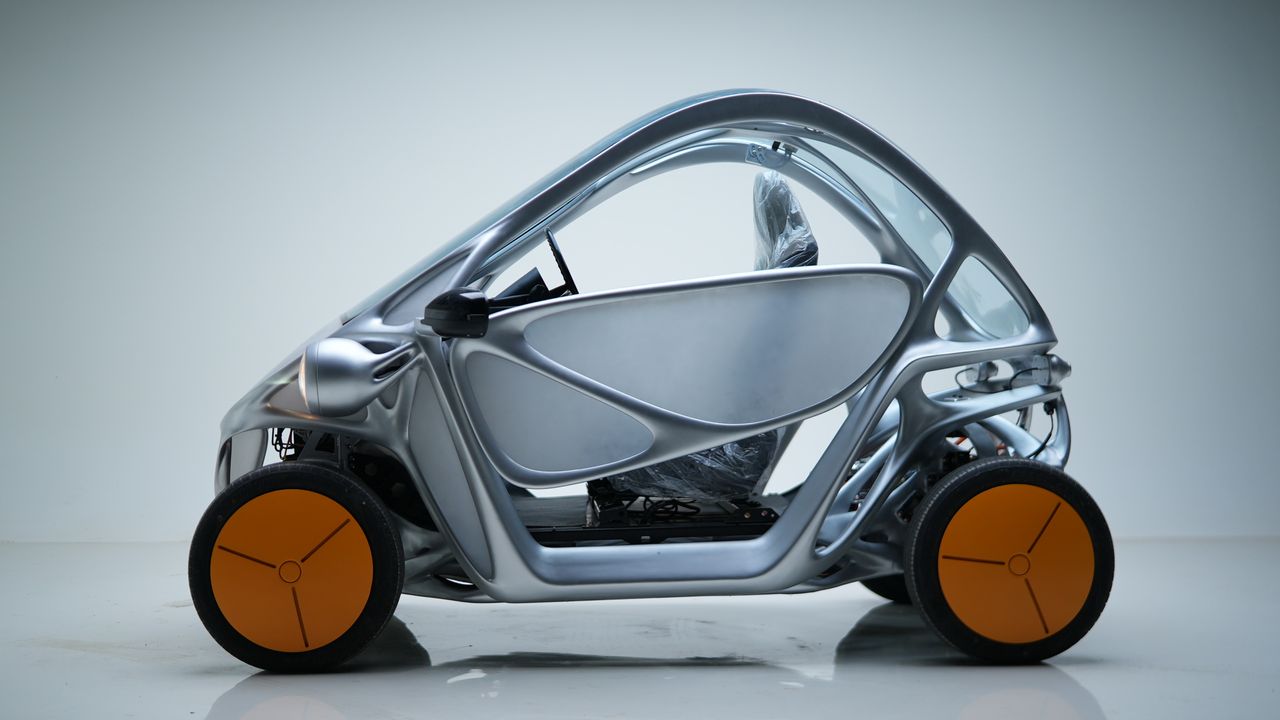
Ultra-compact vehicle concepts come and go, with some even making it into production, but the fact remains that building cars is very much easier and more cost effective when they’re bigger and pricier.
That hasn’t stopped PIX Moving from trying to re-boot the idea that small can be beautiful, especially when it comes to city transportation. The Chinese company, part of the Guizhou Hankaisi Intelligent Technology Co., Ltd, has already presented its Robobus concept, a symmetrical autonomous pod on wheels that has been trialled in Turin and China, amongst other places, capable of operating at speeds of up to 30km/h as it shuffles up to six people around the city.
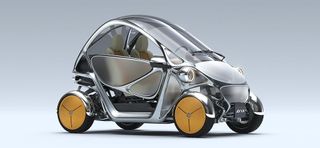
PIX Moving Robo-EV concept city car
This is PIX Moving’s newest concept, the Robo-EV. Described as an ‘innovative micro electric vehicle designed to transform urban mobility with its cutting-edge features and unique open-air design,’ the skeletal-framed two-seater emerged from an online design competition that sourced collaborative ideas from around the world. The prototype was put together at the company’s 3CM ‘smart factory’ in China, using 3D printing technology.
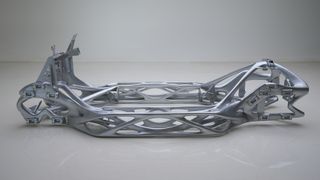
The Robo-EV has a 3D printed metal chassis
There are a lot of unknowns surrounding the insectoid four-wheeler, with its wing-like doors and structural frame formed from 3D printed metal. The company’s social media is awash with AI-generated imagery and there’s also talk of how the printing system car is ‘designed to meet the standards of space manufacturing… [a] groundbreaking process … tailored for vacuum and low-gravity environments,’ complete with pictures of the Robo-EV barrelling across the airless landscapes of the moon and the dusty roads of Mars.

Out of this world: PIX Moving Robo-EV concept city car
So treat the concept with a healthy dose of skepticism and marvel instead at the packaging and poise of this little machine, based on a modular platform and apparently scalable to all sorts of sizes and use cases, from delivery to ride-sharing. That one-piece skeletal form is intriguing, a shape evolved via AI-driven generative design to maximise its strength and use of material.
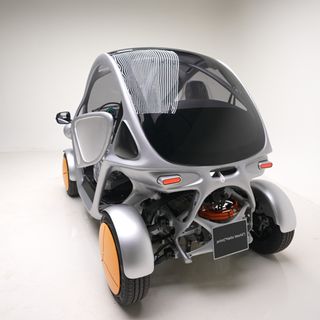
Rear view of PIX Moving's Robo-EV concept city car
AI also rears its head in the shape of an ‘advanced in-car AI system’ that PIX Moving claims can provide ‘intelligent emotional interaction’, depending on your mood and desires. There’s a lot of innovative ideas compressed into this tiny package – whether or not any of them can bear fruit is another matter.
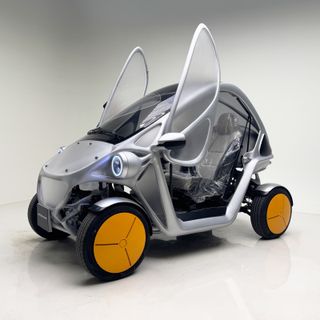
The design is deliberately biomimetic
The company’s ambitions reach even further than transport, with other smart vehicles in its proposed portfolio including autonomous delivery robots and mobile retail spaces. It’s a foolish person who bets against China’s industrious and innovative tech sector, particularly in the field of transportation. Robo-EV might feel otherworldly, but it could be landing near you soon.
Wallpaper* Newsletter
Receive our daily digest of inspiration, escapism and design stories from around the world direct to your inbox.
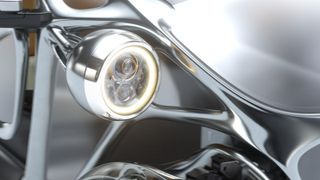
Detail design of the PIX Moving Robo-EV concept city car
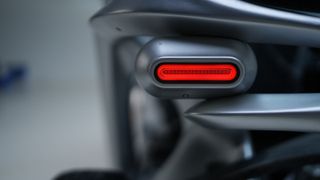
RoboEV.PIXmoving.com, @PIX_RoboEV
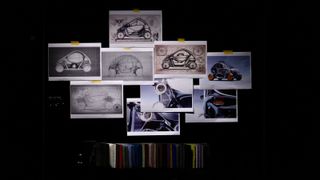
Design sketches for PIX Moving's Robo-EV concept city car
Jonathan Bell has written for Wallpaper* magazine since 1999, covering everything from architecture and transport design to books, tech and graphic design. He is now the magazine’s Transport and Technology Editor. Jonathan has written and edited 15 books, including Concept Car Design, 21st Century House, and The New Modern House. He is also the host of Wallpaper’s first podcast.
-
 The Yale Center for British Art, Louis Kahn’s final project, glows anew after a two-year closure
The Yale Center for British Art, Louis Kahn’s final project, glows anew after a two-year closureAfter years of restoration, a modernist jewel and a treasure trove of British artwork can be seen in a whole new light
By Anna Fixsen Published
-
 How Le Corbusier defined modernism
How Le Corbusier defined modernismLe Corbusier was not only one of 20th-century architecture's leading figures but also a defining father of modernism, as well as a polarising figure; here, we explore the life and work of an architect who was influential far beyond his field and time
By Ellie Stathaki Published
-
 For a taste of Greece, head to this playful new restaurant in London’s Chelsea
For a taste of Greece, head to this playful new restaurant in London’s ChelseaPachamama Group’s latest venture, Bottarga, dishes up taverna flavours in an edgy bistro-style setting
By Sofia de la Cruz Published